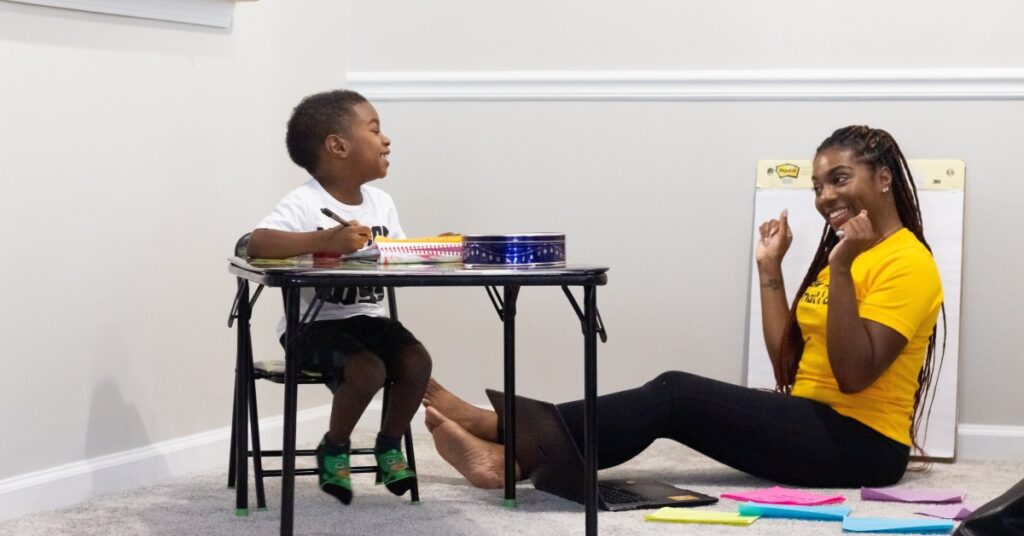
What Is a Master of Library and Information Science?
all LIS professionals must be information-literate. They can work in [...]

In my first education class for my special education teaching credential, my professor asked us each to write out our philosophy of education. I’d never given my philosophy of education a thought before, so it was a stretch for me to believe I could come up with one—of course, I procrastinated the task until the night before it was due.
When you finally get that first teaching job, you probably won’t be asked what your philosophy of education is (except in an Education 101 class). Still, it’s good to know it by heart. Your mindset is what drives you to action, and your philosophy of education shapes the kind of educator you are.
I don’t really remember what I wrote for my first draft of my philosophy of education, but that doesn’t matter. What matters is that you have one—no matter what you teach. And this should inform you as you sit down to meet the principal of the schools that you consider for your first voyage into the educational ocean. Make sure that your educational priorities line up with those of your employer. For example, it’s hard to imagine that any elementary administrator would not be all for movement breaks, collaborative grouping, and flexible seating for students. But not all of them are, so if that’s important to you, make sure you discuss it.
Here are a few more suggestions for you to look for in your first special education teaching gig.
Truthfully, the answer should be all of them. But there are still schools in the United States that only use “resource rooms” to deliver specialized instruction. The best-case scenario is that your potential school uses co-teaching, as it’s the primary (or the only) way to serve students with disabilities.
While you’re at it, ask your potential employer which service delivery model you will be expected to teach. Some special education teachers are hired to be co-teachers, only to find out they are going to be in the small group special education classroom.
| University and Program Name | Learn More |
|
Merrimack College:
Master of Education in Teacher Education
|
It doesn’t seem like too much to ask, getting trained to do the difficult job of educating students with disabilities—but not every school does it. No one is going to hand you a binder of all the policies and procedures that you are expected to know, so it behooves you to ask about them upfront. If nothing else, asking questions will show that you’re proactive.
If they ask what kind of training you want, start with the Individualized Education Program (IEP). Not only did I spend hours writing my first IEP by hand, but since every school system is different, you are going to have to get support on what the expectations are of making a legally compliant program. There are certain software and web applications that will be utilized, and that will all take time to learn.
Teaching special education is always hard—but the first year is a true struggle, even for the best teachers. Sometimes, schools invite a cohort of new teachers to meet after class once or twice a month to check-in. If your potential employer doesn’t do this, how do they support educators in their first year? If they don’t do anything, run.
You must become part of the school community as quickly as possible. Even if you are one of just a few special education teachers in a building, the faster you include yourself, the more support you will get. Many times, special education teachers are forgotten about.
Special education teacher turnover is high all around the country. When you’re looking for your first teaching job, you’ll want to research the schools in your working area and decide which to target. Elements that contribute to high turnover for teachers include inadequate compensation, poor working conditions, burnout, and lack of mentorship.
School morale is also something you should look for. Usually, you can get a feel for a school building just by walking into it. Observe the body language of the educators and families in the front office when you go in for your interview. While this doesn’t tell the whole story, it’s a good indicator of what it would be like to work there.
Landing your first teaching job is a thrill, and even if that first job is less than ideal, you can always learn from a challenging year. Be flexible and know that your teaching career is a marathon, not a sprint. Now, back to crafting your philosophy of education.
Questions or feedback? Email editor@noodle.com

all LIS professionals must be information-literate. They can work in [...]

Elective courses can customize your MLIS degree to a career [...]

Do you intend to work in your community's public library [...]

For decades now, libraries have been attuned to new developments [...]

A more diverse teacher workforce could provide a key to [...]
Categorized as: Special Education, Education & Teaching